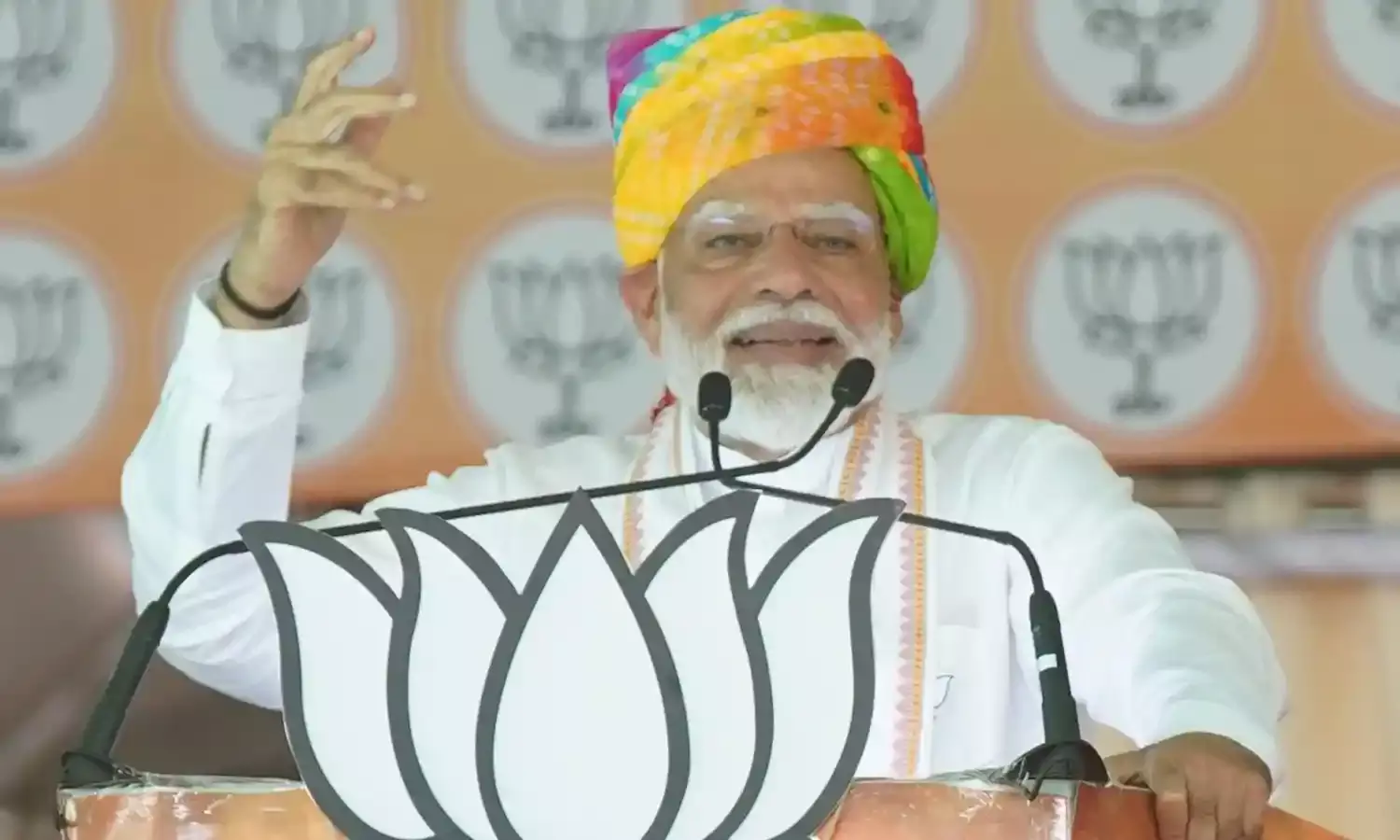Where Is The Election Commission Of India?
PM Narendra Modi’s hate speech
Hate has become part of the Indian canvas for a decade now. It is not that there was no communalism before, in fact some of the bloodiest communal violence has taken place over the years in independent India but never before has it been legitimised, and even applauded as it is now.
The Muslim has been put up as the minority to be most reviled, and victimised in the process, with lynchings, attacks, intimidation becoming the norm, as the ruling Bharatiya Janata Party (BJP) leaders endorse the sectarian and communal violence in loud tones.
It is, however, still a matter of some surprise when the Prime Minister of India, who is supposed to be wedded to the Constitution that ensures equality to all citizens of the country, loses control to the extent where he indulges in what can only be described as hate speech.
PM Narendra Modi’s remarks at an election rally in Rajasthan went even further than his “fish eating under Mughal (read Muslim) influence” remarks against Rashtriya Janata Dal leader Tejaswi Yadav, as here he spoke directly of Muslims in a style that was threatening in its articulation.
The crowd around him cheered, at least many visible on camera did, and the Election Commission of India has since decided to look the other way.
“Ghuspaith (infiltrators)” is clearly a favourite word and the Prime Minister of democratic India claimed that the earlier government in power had said that “the Muslims had the first right on the country's wealth. This means who will they distribute this wealth to after collecting it? Those who have more children, they will distribute it to them. They will distribute it to the infiltrators.”
Asking the crowd whether “they would like their hard earned money to be given to the intruders” the Prime Minister added that “the Congress manifesto has stated that it will calculate the gold of the mothers and sisters, confiscate it, collect information and then distribute that to those to whom Manmohan Singh's government had said that Muslims have the first right on the property, Brothers and sisters, this thinking of urban Nazals, my mothers and sisters, they will not let even your mangalsutra he saved, they will go to this extent…”
The hate mixed with lies does not behove the person who is at the helm of the executive in India. The Congress party, as well as fact checkers, have pointed out the wrong facts stated by him, but the country is waiting for the Election Commission to take up the matter.
Citizens have gone online seeking signatures for petitions to the EC, and what should have been a suo moto issue has still not evoked any reaction from the supposedly independent body in charge of the biggest democratic exercise not just in India, but the world really.
Muslims as a minority have been on the receiving end for ten years now. It started with the ‘beef’ allegations where innocent poor Muslims were attacked in their homes, lynched on the roads, and in trains with barely a murmur from the democratic institutions of the country.
The stereotyping has been targeted to say the least, along with propaganda that the minorities have been pampered and favoured, and need to be put in their place.
In some areas the Muslims have been cast into a highly aggressive stereotype, out to populate the country (as was said by the PM though he comes from a large family as does the Union Home Minister) and eat up the rightful share of those who are in the majority, but have been reduced by the earlier governments to pulp.
While all this propaganda is now familiar, and there is of course a core constituency that swallows these allegations hook, line and sinker, it still remains a matter of deep concern when the Prime Minister repeats the offensive remarks on a public platform, in the full glare of national and international spotlights.
It takes away not just from his persona, but from India that had built itself on the foundation of democracy and secularism. That had drawn attention for her ability to manage the differences of caste, creed, religion, language, food and yet remain united in a vibrant mix of colours and hues.
It is now for the Chief Election Commissioner to emerge from hibernation and inform the voters and the people of the country whether hate speech is now acceptable; whether politicians can indulge in slandering bonafide citizens of India; whether prejudice and bias that divides people is now accepted as the new norm; whether the Election Commission has given up its independence as a bit of a farce, and is openly aligned with the government?
Even if the people of India cannot hope for action, they can at least hope for some answers and thereby stop looking at the ECI as a body in place to ensure a level playing field for not just each and every candidate but also each and every voter in this country.





